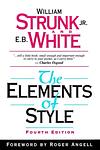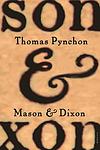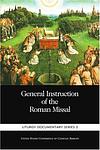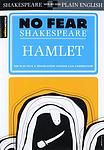The 16 Greatest Books of All Time
This is one of the 284 lists we use to generate our main The Greatest Books list.
-
Madame Bovary by Gustave Flaubert
Madame Bovary is a tragic novel about a young woman, Emma Bovary, who is married to a dull, but kind-hearted doctor. Dissatisfied with her life, she embarks on a series of extramarital affairs and indulges in a luxurious lifestyle in an attempt to escape the banalities and emptiness of provincial life. Her desire for passion and excitement leads her down a path of financial ruin and despair, ultimately resulting in a tragic end.
-
Gulliver's Travels by Jonathan Swift
This classic satire follows the travels of a surgeon and sea captain who embarks on a series of extraordinary voyages. The protagonist first finds himself shipwrecked on an island inhabited by tiny people, later discovers a land of giants, then encounters a society of intelligent horses, and finally lands on a floating island of scientists. Through these bizarre adventures, the novel explores themes of human nature, morality, and society, offering a scathing critique of European culture and the human condition.
-
The Metamorphosis by Franz Kafka
The book tells the story of a man who wakes up one morning to find himself transformed into a giant insect. His transformation causes him to lose his job and become ostracized from his family, who are horrified and repulsed by his new form. As he grapples with his new reality, he becomes increasingly isolated and starts to lose his sense of humanity. The book explores themes of alienation, guilt, and identity, and is a profound examination of the human condition.
-
Leaves of Grass by Walt Whitman
"Leaves of Grass" is a collection of poetry that celebrates the human form and condition, while also exploring themes of democracy, nature, love, and friendship. The book, known for its departure from traditional poetic form, features a free verse style and the use of everyday language. The poet presents himself as both an individual and a universal figure, representing the collective American experience and identity. The collection is also notable for its controversial content at the time of its publication, including candid depictions of sexuality.
-
As I Lay Dying by William Faulkner
The narrative unfolds through the eyes of 15 different characters over 59 chapters. It is the story of the death of Addie Bundren and her poor, rural family's quest and motivations—noble or selfish—to honor her wish to be buried in her hometown of Jefferson, Mississippi. As the Bundren family undertakes a journey to fulfill Addie's last wish, they face many hardships and personal revelations. The novel explores themes of existentialism, death, and the nature of family relationships.
-
In Search of Lost Time by Marcel Proust
This renowned novel is a sweeping exploration of memory, love, art, and the passage of time, told through the narrator's recollections of his childhood and experiences into adulthood in the late 19th and early 20th century aristocratic France. The narrative is notable for its lengthy and intricate involuntary memory episodes, the most famous being the "madeleine episode". It explores the themes of time, space and memory, but also raises questions about the nature of art and literature, and the complex relationships between love, sexuality, and possession.
-
Moveable Feast by Ernest Hemingway
This memoir offers a glimpse into the life of a young American writer living in Paris during the 1920s. The book is filled with personal anecdotes and observations about his life and experiences, including his relationships with other expatriate writers and artists of the Lost Generation. The focus is on the joy of life, the art of writing, and the struggle of a writer. The book also explores the author's love for the city of Paris, which he refers to as a "moveable feast".
-
Paradise Lost by John Milton
"Paradise Lost" is an epic poem that explores the biblical story of Adam and Eve's fall from grace in the Garden of Eden. It delves into their temptation by Satan, their subsequent expulsion, and the consequences of their disobedience. The narrative also provides a complex portrayal of Satan as a rebellious angel, who, after being cast out of Heaven, seeks revenge by causing mankind's downfall. The poem is a profound exploration of free will, divine justice, and the human struggle with good and evil.
-
Fear and Loathing in Las Vegas: A Savage Journey to the Heart of the American Dream by Hunter S. Thompson
This book is a semi-autobiographical novel that chronicles the adventures of a journalist and his attorney as they embark on a drug-fueled trip to Las Vegas. The narrative is a wild and hallucinatory exploration of the American Dream, filled with biting social commentary and outrageous antics. The protagonist's quest for the American Dream quickly devolves into an exploration of the darker side of human nature, highlighting the excesses and depravities of 1960s American society.
-
Heart of Darkness by Joseph Conrad
This classic novel follows the journey of a seaman who travels up the Congo River into the African interior to meet a mysterious ivory trader. Throughout his journey, he encounters the harsh realities of imperialism, the brutal treatment of native Africans, and the depths of human cruelty and madness. The protagonist's journey into the 'heart of darkness' serves as both a physical exploration of the African continent and a metaphorical exploration into the depths of human nature.
-
The Sound and the Fury by William Faulkner
The novel is a complex exploration of the tragic Compson family from the American South. Told from four distinct perspectives, the story unfolds through stream of consciousness narratives, each revealing their own understanding of the family's decline. The characters grapple with post-Civil War societal changes, personal loss, and their own mental instability. The narrative is marked by themes of time, innocence, and the burdens of the past.
-
Collected Poems by Wallace Stevens
"Collected Poems" is a compilation of the author's lifetime work in poetry, showcasing his unique style of combining philosophy and aesthetics into his verse. His poems, often complex and introspective, explore themes of reality, imagination, and the nature of the human mind. The collection is known for its rich imagery and profound contemplation, offering readers a deep and thought-provoking exploration of life and consciousness.
-
Anna Karenina by Leo Tolstoy
Set in 19th-century Russia, this novel revolves around the life of Anna Karenina, a high-society woman who, dissatisfied with her loveless marriage, embarks on a passionate affair with a charming officer named Count Vronsky. This scandalous affair leads to her social downfall, while parallel to this, the novel also explores the rural life and struggles of Levin, a landowner who seeks the meaning of life and true happiness. The book explores themes such as love, marriage, fidelity, societal norms, and the human quest for happiness.
-
Nine Stories by J. D. Salinger
"Nine Stories" is a collection of short stories that delve into the complex inner lives of a variety of characters, often exploring themes of innocence, alienation, and the loss of innocence. Each story is unique, offering a glimpse into a different world or situation, but all are marked by the author's distinctive narrative voice and his ability to create compelling, deeply human characters. From a young boy dealing with the death of his brother to a World War II veteran struggling with PTSD, the stories are both profound and deeply affecting.
-
A Portrait of the Artist as a Young Man by James Joyce
This novel is a semi-autobiographical account of a young man's intellectual and artistic development in late 19th-century Ireland. The protagonist struggles with issues of identity, faith, and nationality, ultimately rejecting the traditional values of his Catholic upbringing to pursue his own path as an artist. The book is renowned for its innovative narrative style and its exploration of themes such as individuality, freedom, and the nature of art.
-
The Elements of Style by E. B. White, William Strunk Jr.
This book is a definitive guide and classic manual on the principles of English language read by millions of readers. The 18 main topics are organized under headings such as Elementary Rules of Usage, Elementary Principles of Composition, A Few Matters of Form, Words and Expressions Commonly Misused, and An Approach to Style. The book's unique tone, wit and charm have conveyed the principles of English style to millions of readers, making it a beloved resource for those who want to write clear, correct and effective prose.
-
The Brothers Karamazov by Fyodor Dostoevsky
This classic novel explores the complex, passionate, and troubled relationship between four brothers and their father in 19th century Russia. The narrative delves into the themes of faith, doubt, morality, and redemption, as each brother grapples with personal dilemmas and family conflicts. The story culminates in a dramatic trial following a murder, which serves as a microcosm of the moral and philosophical struggles faced by each character, and by extension, humanity itself.
-
Henderson The Rain King by Saul Bellow
"Henderson The Rain King" is a novel about a wealthy, middle-aged American named Eugene Henderson who, unsatisfied with his life, travels to Africa in search of a deeper meaning. He becomes integrated into a tribe and is mistakenly thought to be the Rain King, a figure of great power and respect. Throughout the novel, Henderson grapples with his own personal growth, the meaning of life, and the clash of different cultures.
-
Hell's Angels by Hunter S. Thompson
This book provides an immersive exploration of the infamous motorcycle gang, the Hell's Angels, as seen through the eyes of a journalist who spent a year living and riding with them. The narrative delves into the lifestyle, mindset, and public perception of these notorious figures, offering a raw and unfiltered look into their world. It also examines the wider cultural context of the 1960s, including societal anxieties and the counterculture movement, and how these factors intersect with the Hell's Angels' existence.
-
Ulysses by James Joyce
Set in Dublin, the novel follows a day in the life of Leopold Bloom, an advertising salesman, as he navigates the city. The narrative, heavily influenced by Homer's Odyssey, explores themes of identity, heroism, and the complexities of everyday life. It is renowned for its stream-of-consciousness style and complex structure, making it a challenging but rewarding read.
-
Mason & Dixon by Thomas Pynchon
"Mason & Dixon" is a postmodern historical novel which follows the story of the 18th-century British astronomers and surveyors Charles Mason and Jeremiah Dixon, who are known for the Mason-Dixon line. The novel is written in a complex, digressive style, and it includes numerous sub-plots and a wide range of themes. It explores the scientific, philosophical, and sociopolitical issues of the Enlightenment era, as well as the personal lives and friendship of the two title characters.
-
The Interpretation of Dreams by Sigmund Freud
This groundbreaking work explores the theory that dreams are a reflection of the unconscious mind and a means of understanding our deepest desires, anxieties, and fantasies. The book delves into the symbolism of dreams and their connection to repressed thoughts and experiences, proposing that they are a form of wish fulfillment. The author also introduces the concept of "dream work," which transforms these unconscious thoughts into the content of dreams, and discusses various methods of dream interpretation.
-
The Great Gatsby by F. Scott Fitzgerald
Set in the summer of 1922, the novel follows the life of a young and mysterious millionaire, his extravagant lifestyle in Long Island, and his obsessive love for a beautiful former debutante. As the story unfolds, the millionaire's dark secrets and the corrupt reality of the American dream during the Jazz Age are revealed. The narrative is a critique of the hedonistic excess and moral decay of the era, ultimately leading to tragic consequences.
-
The Bible by Unknown
The Bible is the central religious text of Christianity, comprising the Old and New Testaments. It features a diverse collection of writings including historical narratives, poetry, prophecies, and teachings. These texts chronicle the relationship between God and humanity, detail the life, death, and resurrection of Jesus Christ, and follow the early Christian church. Considered divinely inspired by believers, it serves as a foundational guide for faith and practice, influencing countless aspects of culture and society worldwide.
-
First Folio by William Shakespeare
This collection is a compilation of 36 plays by a renowned English playwright, published seven years after his death. It includes comedies, histories, and tragedies, some of which had never been published before. Notable works in the compilation include "Macbeth," "Julius Caesar," "Twelfth Night," "The Tempest," and "As You Like It." The collection is considered one of the most influential books ever published in the English language, as it preserved many of the playwright's works that might have otherwise been lost.
-
The Iliad by Homer
This epic poem focuses on the final weeks of the Trojan War, a conflict between the city of Troy and the Greek city-states. The story explores themes of war, honor, wrath, and divine intervention, with a particular focus on the Greek hero Achilles, whose anger and refusal to fight have devastating consequences. The narrative also delves into the lives of the gods, their relationships with humans, and their influence on the course of events.
-
The Odyssey by Homer
This epic poem follows the Greek hero Odysseus on his journey home after the fall of Troy. It takes Odysseus ten years to reach Ithaca after the ten-year Trojan War. Along the way, he encounters many obstacles including mythical creatures, divine beings, and natural disasters. Meanwhile, back in Ithaca, his wife Penelope and son Telemachus fend off suitors vying for Penelope's hand in marriage, believing Odysseus to be dead. The story concludes with Odysseus's return, his slaughter of the suitors, and his reunion with his family.
-
Metamorphoses by Ovid
"Metamorphoses" is a classical epic poem that narrates the history of the world from its creation to the deification of Julius Caesar within a loose mythico-historical framework. The narrative is filled with stories of transformation, focusing on myths and legends of the Greek and Roman world. The tales, which include the stories of Daedalus and Icarus, King Midas, and Pyramus and Thisbe, among others, are all linked by the common theme of transformation, often as a punishment or reward from the gods.
-
Prometheus Bound by Aeschylus
"Prometheus Bound" is a tragedy set in ancient Greece that tells the story of the Titan Prometheus, who defies the gods by giving humans the gift of fire, a symbol of knowledge and civilization. As punishment, Zeus chains Prometheus to a rock in the Caucasus Mountains where he is tormented by a vulture that eats his liver every day, only for it to grow back overnight. Despite his suffering, Prometheus refuses to submit to Zeus' will, embodying the human spirit's unyielding resistance against oppression.
-
Oresteia by Aeschylus
"Oresteia" is a trilogy of Greek tragedies that tells the story of the House of Atreus. It begins with King Agamemnon's return from the Trojan War and his subsequent murder by his wife, Clytemnestra, and her lover, Aegisthus. The second play focuses on the revenge of their son, Orestes, who kills his mother and her lover to avenge his father's death. The final play deals with the trial of Orestes by the gods for the crime of matricide, resulting in his acquittal and the end of the curse on the House of Atreus. The trilogy explores themes of justice, vengeance, and the intervention of the gods in human affairs.
-
Seven Against Thebes by Aeschylus
"Seven Against Thebes" is a classic Greek tragedy that revolves around the conflict between the two sons of Oedipus, Eteocles and Polynices, who are fighting for the throne of Thebes. The brothers ultimately kill each other in battle, fulfilling their father's curse that they would divide their inheritance by the sword. The play ends with the women of Thebes mourning the death of the brothers and the city in ruins. The tale is a powerful exploration of family loyalty, power struggles and the consequences of destiny and fate.
-
The Persians by Aeschylus
"The Persians" is an ancient Greek tragedy that tells the story of the Persian King Xerxes and his failed invasion of Greece. The narrative focuses on the aftermath of the Battle of Salamis, depicting the mourning of Xerxes' mother and the ghost of his father Darius, who prophesied the fall of the Persian Empire. It serves as a critique of the arrogance and hubris of Xerxes and a celebration of Greek victory, while also exploring themes of war, loss, and the consequences of ambition.
-
The Suppliants by Aeschylus
"The Suppliants" is a classic Greek drama that revolves around a group of fifty women who flee from Egypt to avoid marrying their cousins, seeking asylum in the city of Argos. The King of Argos is torn between offering them protection or facing the wrath of the Egyptians. The play explores themes of democracy, law, and the struggle between the sexes. The drama ends on a cliffhanger, with the Egyptian suitors arriving to reclaim the women and threatening war.
-
Medea by Euripides
"Medea" is a Greek tragedy that tells the story of Medea, a former princess of the "barbarian" kingdom of Colchis, and her husband Jason, who leave her to marry Glauce, the daughter of Creon, king of Corinth. In a fit of rage, Medea decides to take revenge on Jason by killing their children, Jason's new wife, and her father, King Creon. The play explores themes of revenge, women's rights, and the dangers of absolute power.
-
The Bacchae by Euripides
"The Bacchae" is a classic Greek tragedy where the god Dionysus, disguised as a mortal, returns to his birthplace in Greece to punish the impious King Pentheus who denies Dionysus's divine nature and refuses to worship him. The narrative explores themes of revenge, mortality, and the relationship between man and god. Dionysus uses his power to drive the women of the city into a crazed frenzy, leading to a tragic end for King Pentheus and his mother Agave.
-
Trojan Women by Euripides
"Trojan Women" is a tragic play set in the aftermath of the Trojan War, focusing on the fate of the women of Troy. The story follows the mother of Hector, Hecuba, and her daughter-in-law, Andromache, as they grapple with the loss of their city and loved ones. They, along with other women, are destined to become slaves to the victorious Greeks. The narrative explores themes of war, suffering, and the resilience of women in the face of adversity.
-
Hippolytus by Euripides
"Hippolytus" is a tragic play that revolves around the themes of lust, revenge, and the wrath of the gods. The story follows the character Hippolytus, a dedicated follower of the goddess Artemis, who spurns the advances of his stepmother Phaedra. In a fit of jealousy, Phaedra falsely accuses Hippolytus of rape, leading his father Theseus to curse him. The resulting divine punishment and misunderstandings lead to the tragic deaths of both Hippolytus and Phaedra, revealing the devastating consequences of deceit and the unforgiving nature of the gods.
-
Oedipus at Colonus by Sophocles
"Oedipus at Colonus" is a tragic play that follows the final days of Oedipus, the former king of Thebes. Oedipus, now blind and exiled, arrives at the town of Colonus where he is initially rejected due to the curse that follows him. However, after revealing a prophecy that his burial place will bring prosperity to the city that hosts it, he is allowed to stay. The play explores themes of fate, guilt, and redemption, ending with Oedipus's peaceful death and ascension to a semi-divine status.
-
Ajax by Sophocles
"Ajax" is a classic Greek tragedy that revolves around the character of Ajax, a heroic warrior in the Trojan War who falls into a state of madness and despair when he is passed over for the honor of inheriting the armor of the fallen hero, Achilles. In his fury, Ajax slaughters a flock of sheep, believing them to be his comrades. When he regains his sanity and realizes what he has done, he is filled with shame and ultimately takes his own life. The play explores themes of honor, pride, and the tragic consequences of unchecked rage.
-
Electra by Sophocles
"Electra" is a classic Greek tragedy that revolves around the character of Electra and her thirst for revenge. After her father, the king, is murdered by her mother and her mother's lover, Electra and her brother, Orestes, plot to avenge their father's death. The story is a complex exploration of justice, vengeance, and familial duty, depicting Electra's struggle between her desire for revenge and the moral implications of matricide.
-
Oedipus the King by Sophocles
"Oedipus the King" is a tragic play that revolves around the life of Oedipus, the king of Thebes, who is prophesied to kill his father and marry his mother. Despite his attempts to avoid this fate, Oedipus unknowingly fulfills the prophecy. When he discovers the truth about his actions, he blinds himself in despair. The play explores themes of fate, free will, and the quest for truth, highlighting the tragic consequences of human hubris and ignorance.
-
Philoctetes by Sophocles
"Philoctetes" is a Greek tragedy that tells the story of a skilled archer abandoned on a deserted island by the Greeks during the Trojan War, due to a foul-smelling wound on his foot. Years later, the Greeks discover a prophecy that they will need Philoctetes and his magical bow to win the war. They send Odysseus and Neoptolemus to retrieve him, leading to a moral dilemma as they must decide whether to deceive the bitter and mistrustful Philoctetes or to persuade him to willingly join their cause. The play explores themes of suffering, deceit, and the struggle between personal integrity and duty.
-
Women of Trachis by Sophocles
This ancient Greek tragedy follows the story of a woman who mistakenly kills her husband, a legendary hero, with a poisoned shirt. She had been given the shirt by a dying centaur who told her it would ensure her husband's loyalty. However, the centaur had actually been fatally wounded by the hero, and the shirt was soaked in the centaur's poisonous blood. The woman kills herself upon realizing her tragic mistake.
-
Antigone by Sophocles
This ancient Greek tragedy follows the story of Antigone, a young woman who defies the king's edict in order to bury her brother according to their religious customs. The king, her uncle, sentences her to death for her disobedience, leading to a series of tragic events including his own son's suicide. The play explores themes of loyalty, honor, obedience, and the conflict between the laws of the state and the laws of the gods.
-
The Sun Also Rises by Ernest Hemingway
The novel is a poignant tale set in the 1920s post-World War I era, focusing on a group of American and British expatriates living in Paris who travel to Pamplona, Spain for the annual Running of the Bulls. The story explores themes of disillusionment, identity, and the Lost Generation, with the protagonist, a war veteran, grappling with impotence caused by a war injury. The narrative is steeped in the disillusionment and existential crisis experienced by many in the aftermath of the war, and the reckless hedonism of the era is portrayed through the characters' aimless wanderings and excessive drinking.
-
U.S.A. Trilogy by John Dos Passos
The U.S.A. Trilogy is a series of three novels that chronicle the lives of various characters in the first half of the 20th century in the United States. The narrative intertwines the stories of twelve characters as they navigate the societal changes and upheavals of the era, including World War I, the Great Depression, and the rise of Hollywood. The author uses a unique narrative technique that combines traditional prose, newspaper-style headlines, biographies, and stream-of-consciousness writing to paint a vivid picture of American life during this period.
NYU Local, 46 Books
Two book editors for the nyulocal.com present their list of the 16 greatest books of all time, with a list of runner-ups as well.
Added over 9 years ago.
This list has a weight of 66%. To learn more about what this means please visit the Rankings page.
Here is a list of what is decreasing the importance of this list:
- Voters: 2 people voted
If you think this is incorrect please e-mail us at [email protected].













































